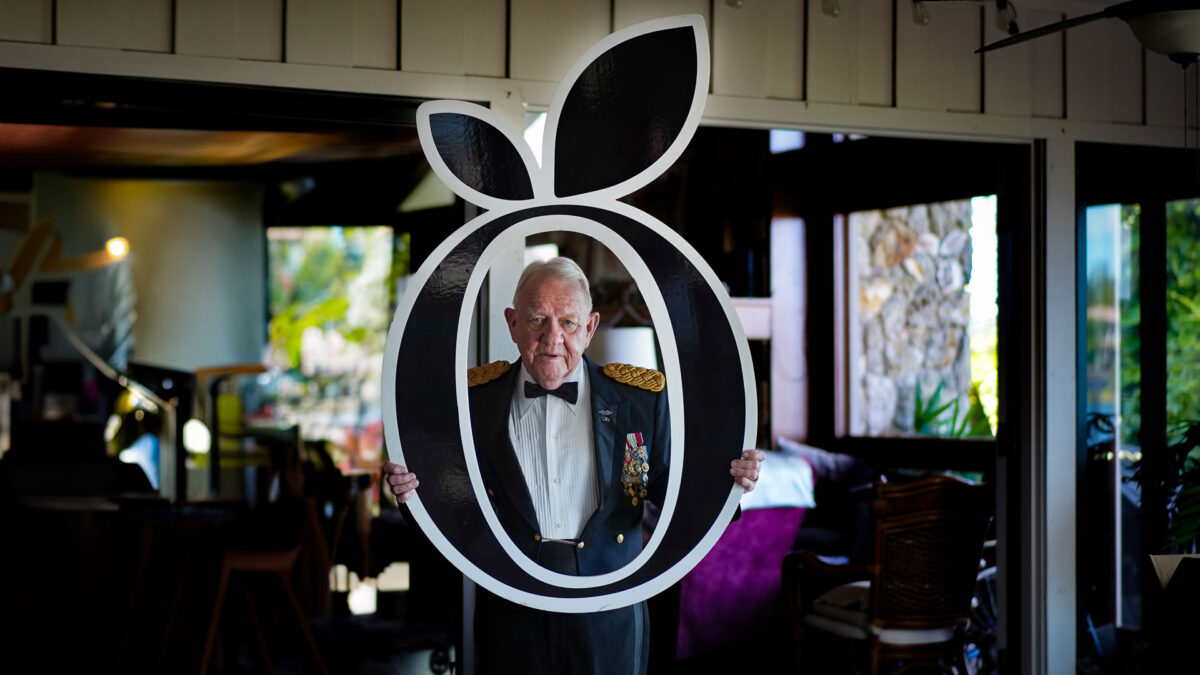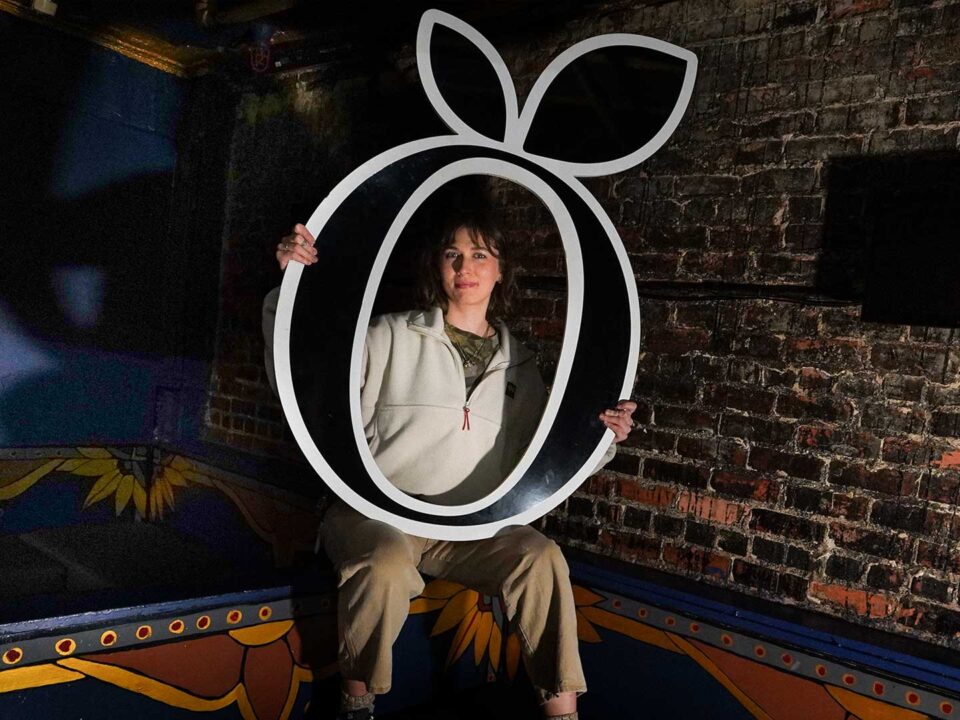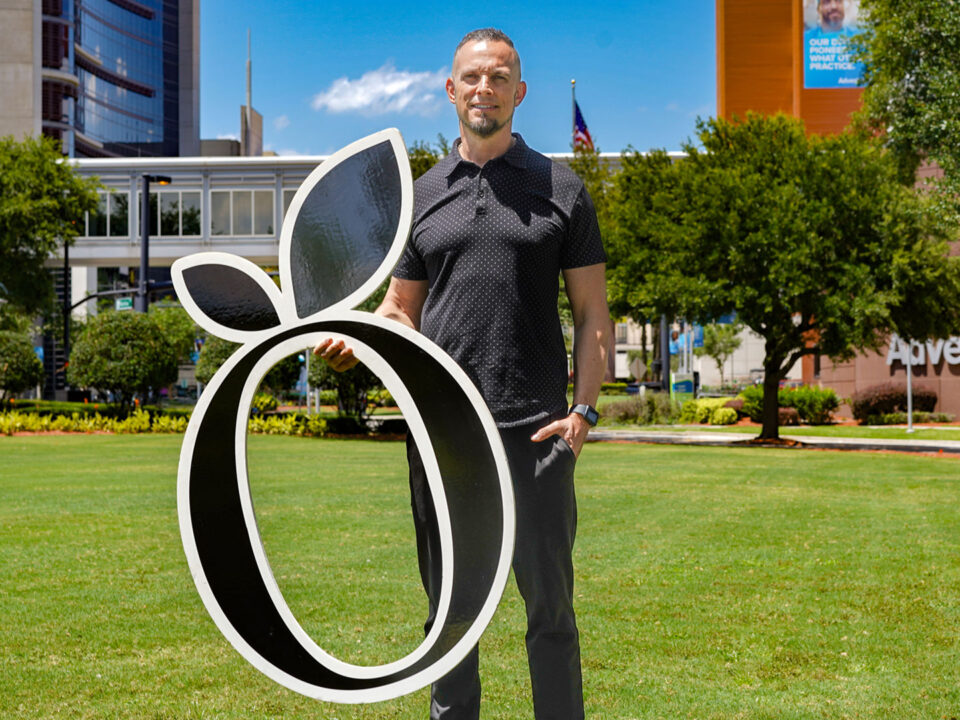
Orlando Pickleball Fans Meet the Squeeze at Dinktoberfest
October 22, 2023
Orlando is the Center of the Metaverse, the Hub of Immersive Technology
November 7, 2023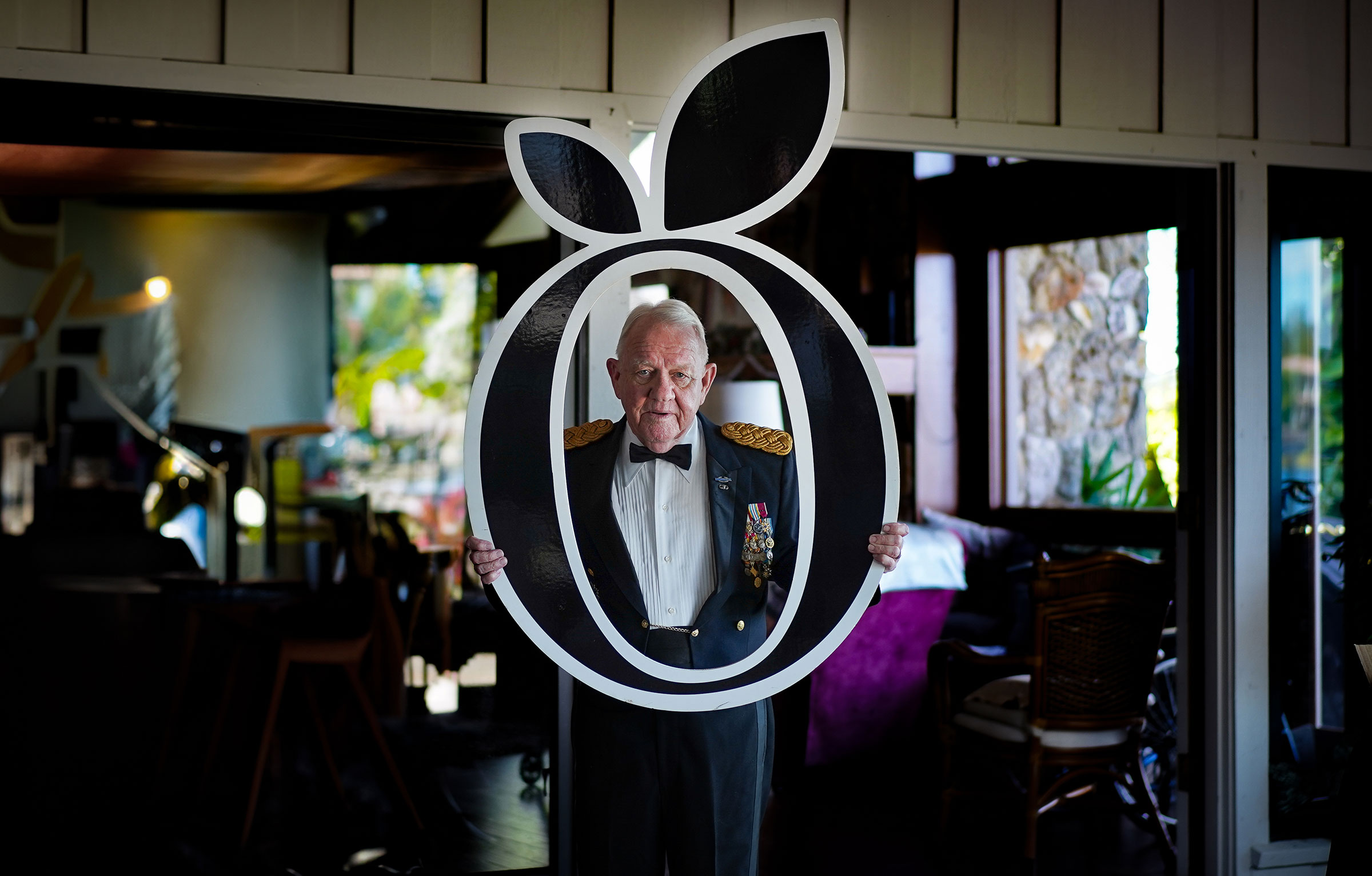
Jay Garner: Lieutenant General and Guardian of Freedom
Jay Garner is a Lieutenant General who grew up in Arcadia and now lives in Orlando with his wife Connie and their daughter Lori and her family. Born in 1938 to Harley and Consuello Garner, Jay served 42 years in the military, 35 of which were in the Army. With an initial desire to practice law, his life’s work in serving our country resulted in a number of tours, one of which he led in saving a million Kurds.
While growing up, Jay always had the desire to “amount to something.” While that can mean different things to different people, for Jay, amounting to something meant being a good person, being responsible, taking care of your family and standing up for what’s right.
Jay was just four years old when WWII broke out. The military was front and center in his childhood as he remembers his mom taking him to bed and saying his prayers which always included his 3 cousins Malcolm, Eugene, and Russell, who were serving in the Marine Corps at that time.
While Arcadia was always home, Jay moved around a bit due to his father’s work. Being the consistent “new kid,” Jay learned how to prove himself quickly each time he entered a new school.
In their last stop before moving back to Arcadia, Jay played basketball, football and baseball in St. Petersburg. As they were getting ready to move back, Jay’s father told him he needed his help in working their farm, which included cows and horses.
“Ok sonny boy, you can play sports 6 months out of the year, but you’re going to have to work for me 6 months out of the year. So you figure out which 6 months you want to play and which 6 months you want to work.” - Harley Garner
Growing up, Jay had what he called a professional business relationship with his father. While his mother was nurturing and affectionate, Jay recalls his dad’s affection coming in the form of handshakes. While that may cause some people to frown, Jay loved his father a great deal and wanted to look and be just like him when he grew up.
Their home in Arcadia didn’t have running water, a proper bathroom or even electricity. In the winter time, that meant the water coming out of the pump was ice cold. Jay decided that the 6 months he was going to play sports was during the colder months so he could leverage the warm showers at the gym instead of cold ones on the porch.

In high school, Jay became the quarterback and a point guard on their basketball team. In his second year of high school not only did he meet Connie, but he also became the first sophomore to make the varsity basketball team, an opportunity that would lead to a lifelong leadership lesson.
A Lesson in Leadership
Arcadia’s basketball team was playing Lake Placid. Jay played back up to the team's star player, Joel Hagen, who fouled out with 2 minutes left in the game that was tied 60-60. His Coach, Moe Gibson, looked over at Jay and told him to get in there and keep his head up.
Lake Placid’s All State player, a guy named Bates, was eating Jay up as he dribbled down the court. With a minute left in the game Jay was fouled.
Jay was a fantastic free throw shooter and he knew it was his moment to shine. As he stepped to the line, Jay positioned himself and took the shot. The ball landed halfway between him and the basket. Knowing the game was tied, Jay shook it off and took his second shot. This time the ball shot over the net, hit the top off the backboard and bounced out.
The game ended up going into overtime and Arcadia won, but Jay was embarrassed and skipped the locker room and headed for the exits. As the weekend passed and Monday came along, Jay walked by Coach Gibson’s office and heard, “Jay, get in here!”
Coach Gibson told Jay he looked for him after the game and couldn’t find him anywhere. Still embarrassed, Jay responded by telling him he had to go home.
Coach Gibson told him, “Well I just wanted to thank you. I thought you played a great game and I thought you did a super job. You never lost the ball and you kept everything under control. I was really proud of you for that and I wanted you to know the first chance I saw you.”
Jay couldn’t believe it and said, “But Coach, I missed 2 free throws!”
Coach said, “Not like I ever missed a free throw….” He then slapped Jay on the ass, told him to get to class and said, “Proud you’re on the team.”
This powerful moment has stuck with Jay his entire life, he never forgot it. To him it was a great lesson in leadership, a lesson that he carried into his military career.
“When something didn’t go my men’s way, and they did the best they could, I never put them down for it. I simply said, "You'll do better next time.” - Jay Garner
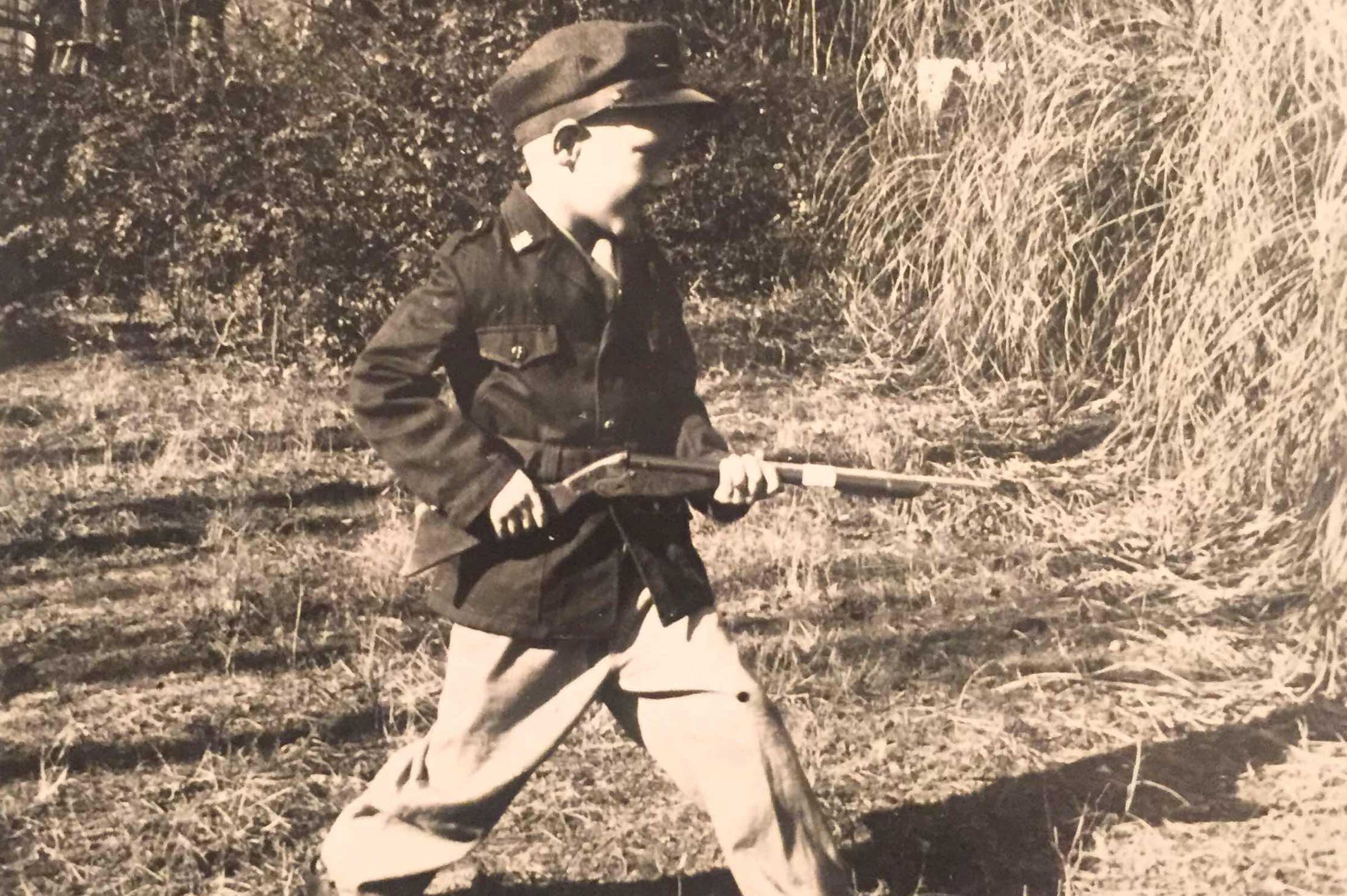
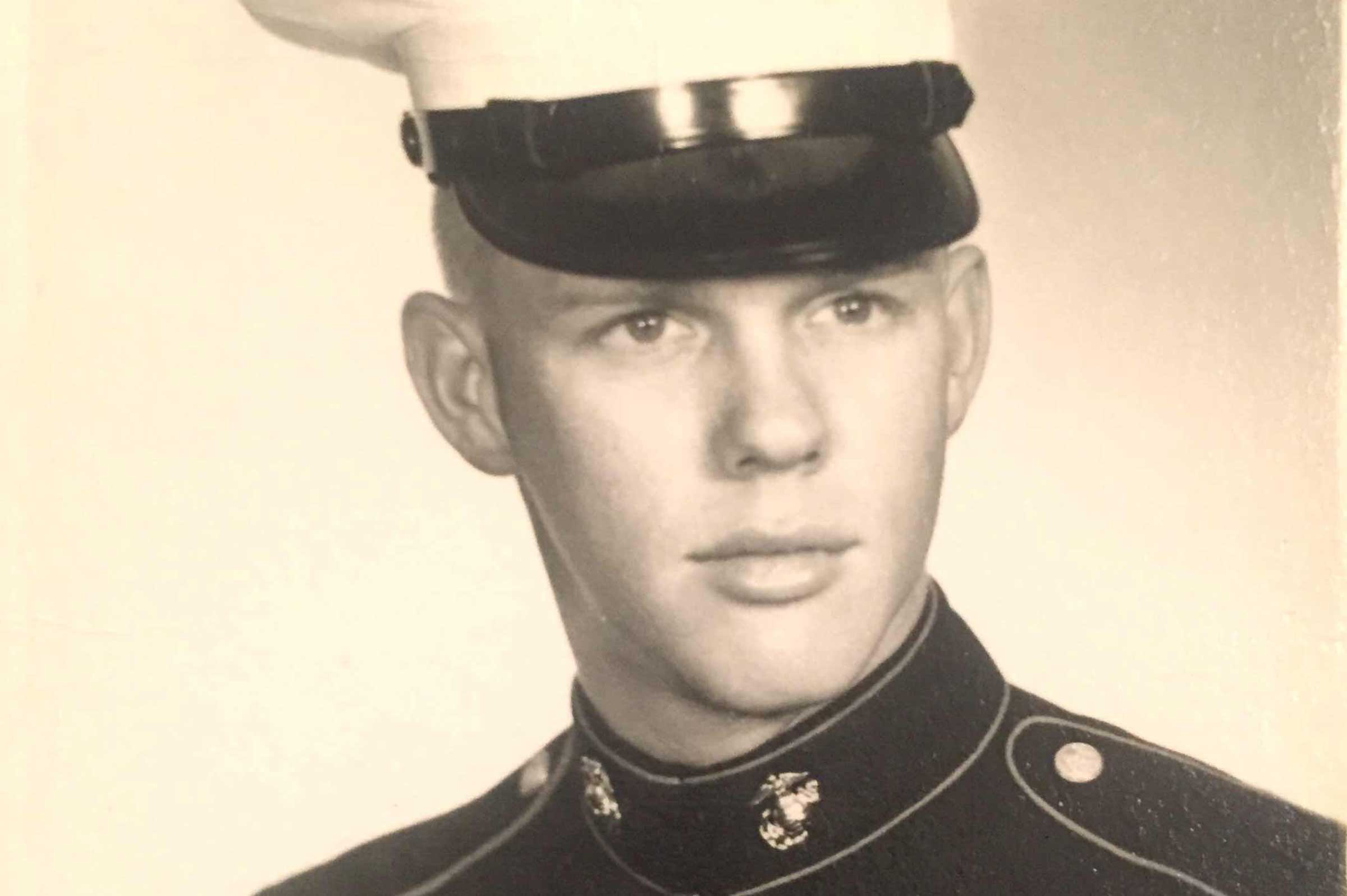
Military and Education
In Arcadia in 1955, joining the National Guard was something well respected in the community. At 17 years old, Jay signed up, despite his parents not wanting him to. By 18, he was promoted to Staff Sergeant, a fast paced achievement that meant a lot to Jay.
After graduation, Jay headed to Florida Southern College, but his time there didn’t go very well. Struggling, the Dean of Men encouraged Jay to get a job or go into the service to mature. Jay chose the latter and signed up to join the Marine Corps and then the Reserves where he would remain for a couple years.
After his time in the Reserve, Jay headed back to Florida Southern. Not being able to afford room & board plus tuition, Jay picked up a job at the school's gym and modified his 1950 Ford to fit a mattress and clothing rack for his 7-8 pieces of clothing. Similar to high school, he used the shower in the gym to stay clean as he slept in the car for one semester.
In 1958 Jay and Connie married. Connie was also attending Florida Southern, and they stayed there until September of 1959 before enrolling at Florida State. The two of them lived in married housing at FSU and would give birth to their first and only child, Lori, in 1961.
Jay graduated from FSU in 1962 with a degree in History. His goal was to go to Law School here in Florida but with bills stacking up on the table, the dream began to fade.
While working at an oil service station, a Professor of Military Science and Tactics with the ROTC came to have his car serviced. Hearing that Jay had been in the Marines he asked him to count cadence. After doing it he offered Jay to take Advanced ROTC which paid $30/month. With no obligation to go into the service, Jay evaluated he and Connie’s finances and decided to do it.
Upon graduation from ROTC, Jay decided to take the commission with the Army.
Jay was commissioned as an Artillery Officer and went to Fort Bliss to take the basic course. From there he went to Germany where he stayed 2.5 years as a Lieutenant.
Jay finished his time in the Army in 1964 and decided it was time to go to Law School. After taking the exam and passing he was accepted to the University of Florida, which would have started in September of 1965. However, in June or July, President Lyndon Johnson sent the 173rd Brigade to Vietnam and Jay felt guilty. He called up his Battalion Commander that he had in Germany, who was now at the Pentagon.
Colonel Harris, get me back in the Army!
The next night, Colonel Harris called and told him his orders were on the way and that he was back in the Army.
Jay went to an Artillery Brigade in Montgomery, Alabama at which point he volunteered to go to Vietnam. After attending Counter Guerrilla Warfare School at Fort Bragg and Vietnamese Language School at Fort Bliss, Jay would leave for Vietnam in 1967 as an Infantry Advisor.
As Jay was getting on the plane to leave, his father stopped him, pulled him in, and hugged him for the first time.
In Vietnam, Jay was paired with a Montagnard scout company. The Montagnards are an indigenous people from Vietnam and, according to Jay, they are incredible fighters.
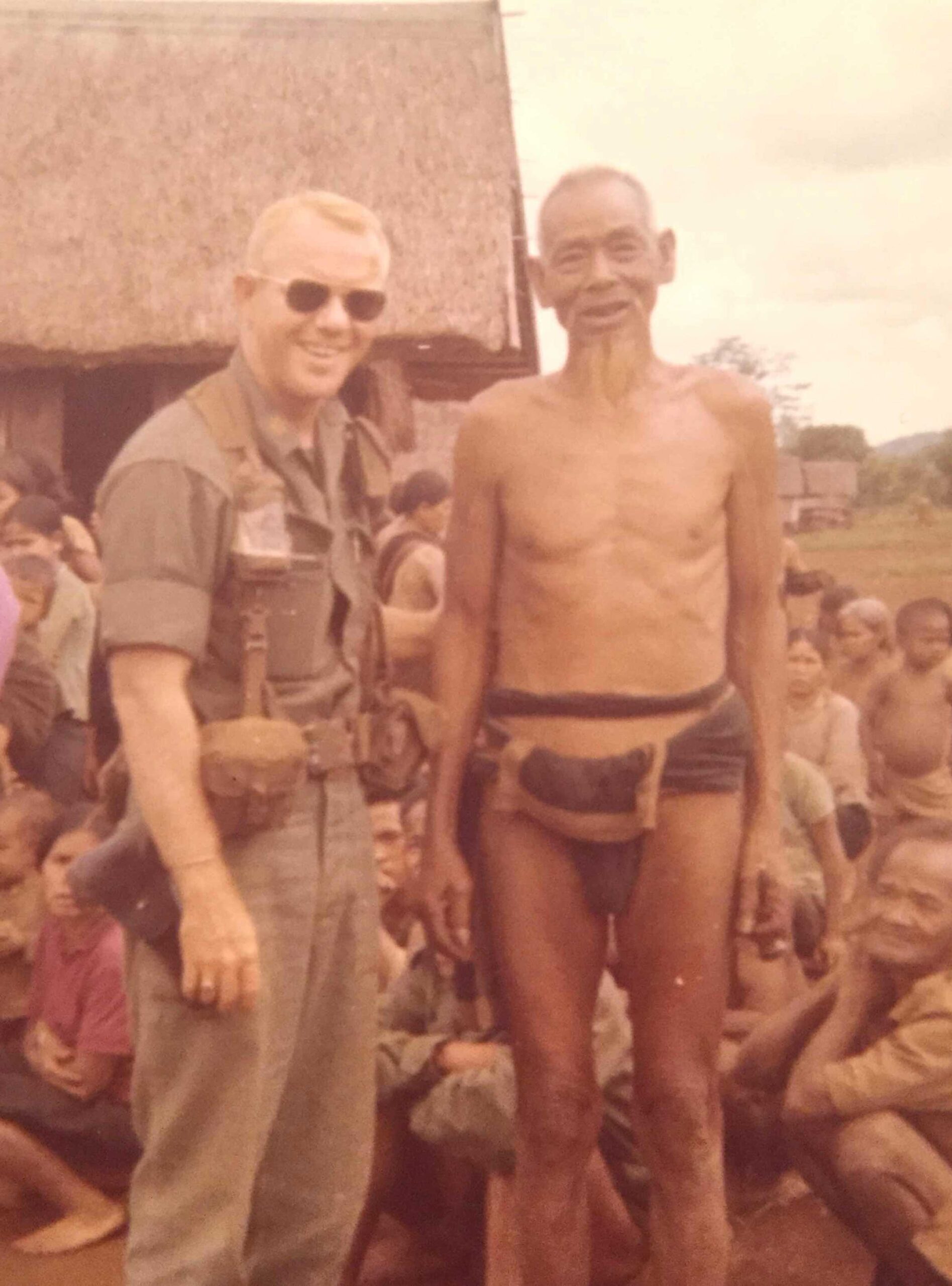
The Montagnards are an indigenous people from the Central Highlands of Vietnam
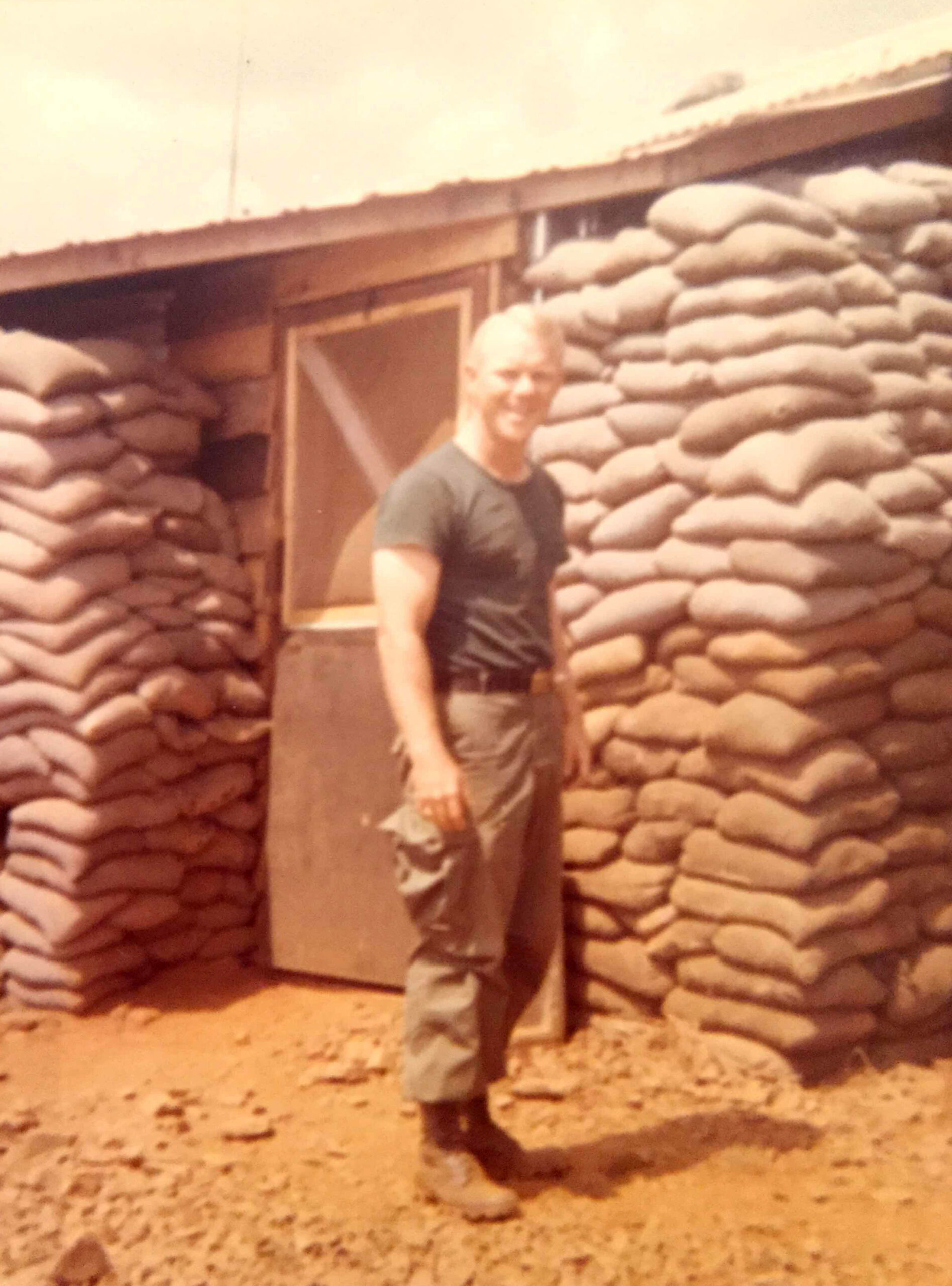
Jay Garner in Vietnam
Trouble at home keeps Jay alive
During his time in Vietnam every afternoon or so, L19’s would fly over dropping sacks down with personal mail in them. One particular letter flustered Jay quite a bit.
Connie wrote to me everyday telling me what she and Lori had been doing. In this particular letter, Connie was sharing what they were doing but then closed out the letter by saying she had to go because her friend Bill was coming over for dinner. I thought to myself, who the hell is Bill and why is he coming over to have dinner with my family while I’m off to war?
Frustrated at what was going on at home, that same night all hell broke loose as the Tet Offensive started at 2am. For the next 35-40 days no mail came or went due to the fighting.
Jay was determined to stay alive and that’s exactly what he did. When Jay got home he was ready to deal with Bill. When asked who the hell he was, Connie was quick to tell him that Bill was a 6 year old boy who lived 3 doors down and was Lori’s boyfriend. Jay could do nothing but laugh.
Back from Vietnam
Back home, Jay was assigned to New York where he was responsible for the Nuclear Nike Hercules Battery. He had 36 nuclear air-to-air rounds to defend NYC. He had no experience with Nike Hercules Batteries and he was the 6th Battery Commander that calendar year. All previous Commanders were fired from their position, and while Jay was never fired, he felt it was a terrible position as he didn’t like the nuclear business.
Jay went on to Fort Bliss, as a Captain, for a career course. He was there for 9 months before being assigned to Panama in September of 1969.
Over the course of the next 16 years Jay spent time in Panama, Vietnam, Virginia, Germany and then to the Army War College in Carlisle, PA. During this time he had been promoted from Major to Lieutenant Colonel.
After running hard in the Army for a number of years, his time at the Army War College was an opportunity to enjoy his studies and relax. Many of the guys who were also there were people he knew. As Jay rounded out his year he was promoted to Colonel and selected to Command a Brigade in Germany. He would stay in Germany for 2 years before heading to the Pentagon to be a Division Chief.
Jay Plans to Call it Quits
The year was 1986 and Jay and Connie headed to Arcadia to attend their 30th High School Reunion. Held at a local country club, Jay ran into some familiar faces at the bar. The group of guys started to ask Jay when he was going to retire. Jay told them he could retire anytime but he just hadn’t decided yet.
The guys presented an opportunity for Jay that was quite intriguing. They asked him to come back to Arcadia to be the County Manager. The position paid $50,000/year and came with a new car every 2 years. That was quite a lot of money in 1986 and Jay liked it. He told the guys he’d put in his retirement papers and be ready to start September 1st of that year.
The next day on his way to Miami to spend time with Connie and Lori, Jay was contacted by General Jack Woodmansee who congratulated him for making the Brigadier General list.
Jay never thought he’d make General, and asked Jack to read him the social security number on the list to prove he got it wrong. To Jay's surprise, it was his. Jack told him to have a good time down in Miami with his family and that when he came back he had a new job for him.
Passing on the County Manager position, Jay went to Fort Bliss and in the next two years he was promoted to Brigadier General and sent to Germany for the 4th time to serve as the Deputy Commanding General of the 5th Corps in Frankfurt.
Jay Garners Greatest Mission
When the Gulf War ended in 1991 there was an uprising by the Shia and Kurds to overthrow Saddam Hussein. General Norman Schwarzkopf had just signed surrender agreements that released the Iraqi army back to Saddam Hussein and upon their release, Saddam sent them to kill the Shia and Kurds. They were able to kill most of the Shia and as they went to battle the Kurds, many were able to evacuate into the mountains of Turkey and Iran. The entire situation turned into a humanitarian crisis as the Kurds were freezing and starving to death in the mountains while Iraqi troops occupied their homes.
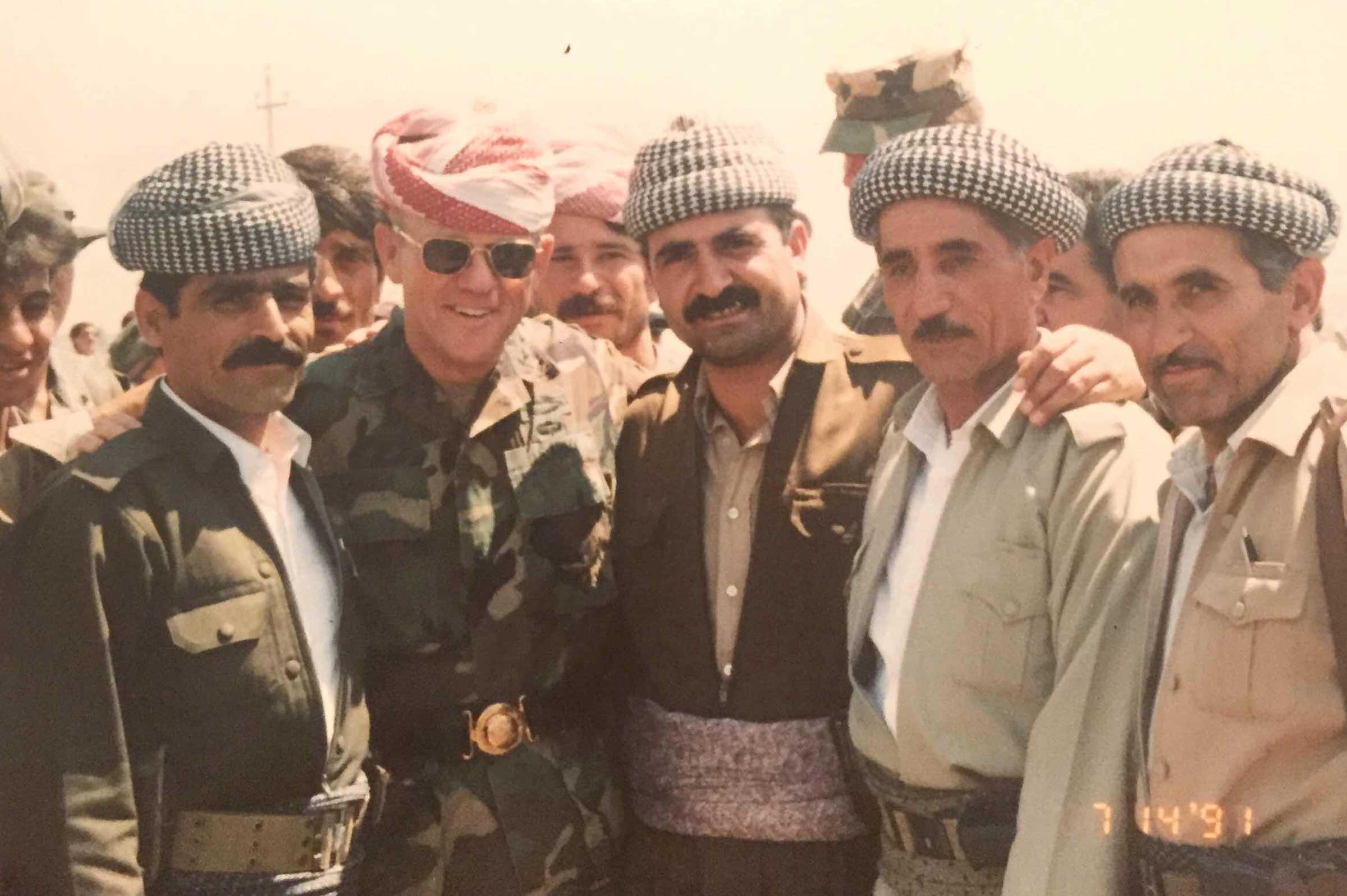
President George Bush (Sr) and Sir John Major decided to send a military force there. The Commanding General called Jay up and told him to get on a helicopter, go to Stuttgart and find out what was going on down there with the Kurds in Northern Iraq. When he got to Stuttgart they put Jay on a plane and sent him to Turkey.
When Jay got to Turkey they told him, “We’re going to put a military force in Northern Iraq and you’re going to be in charge of it.”
Jay commanded a multinational task force and worked alongside (then) Colonel Jim Jones, who remains a friend today.
Jay was able to rescue close to one million Kurds that were up in the mountains dying in large numbers every day. They were able to put in air lifts and bring them warm clothing, tents, blankets and food. Jay’s Task Force then went into Iraq, cleared the way, set up security zones and brought them all back.
From Jay Garner to John Abizaid to Jim Jones, they all say it was their best tour because it was so rewarding; saving people's lives and taking care of the kids.
A Childs Gift to Jay
The day Jay was leaving Iraq a child ran out of the crowd and handed him an envelope. Jay gave it to his radio operator, Jimmy Bailey, and asked him to hang on to it. Later that day they crossed into Turkey and Jimmy came and said, “Jay you see what’s in here?” Jay opened it up to see a picture of everybody happy, cheering and kids running around playing. At the bottom of the drawing the kid put his name there. Jay looked at Jimmy and said, “Get the helicopter in the morning, let’s go back over and find this kid, I want to give him a coin.”
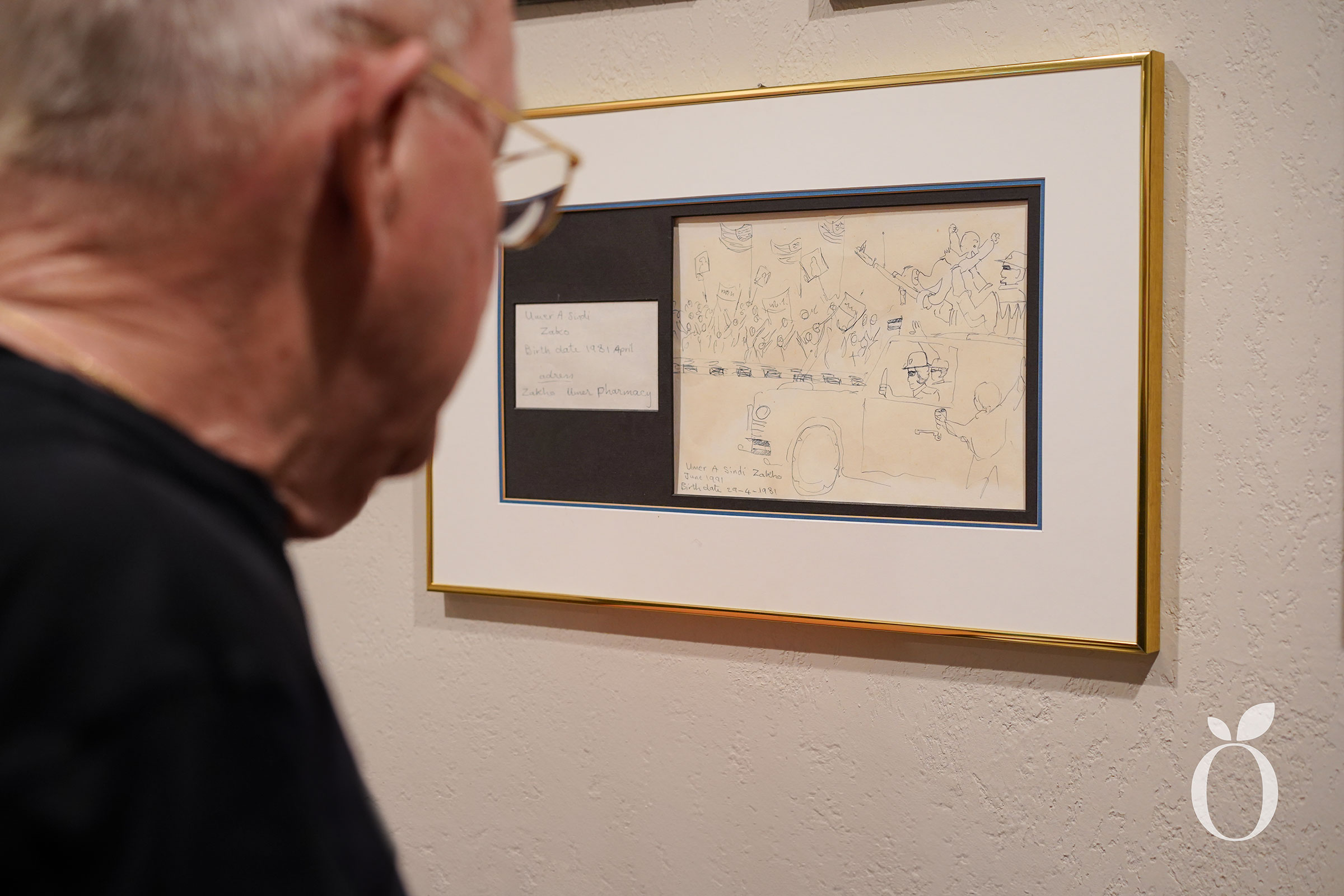
A drawing given to Jay Garner from a young Kurdish boy hangs proudly in his home office
Jay found the child by way of one of the locals, Fadel Merani. He said he lived over the pharmacy with his aunt and uncle. Jay asked about his parents only to find out that his parents, siblings, and village were gassed by Saddam Hussein in 1988. He was 7 years old and the only survivor out of his family.
It’s now 1991, and this kid had lived his entire life fearing anyone in uniform. He was taught to run like hell if he saw someone in uniform because that meant they were the bad guys. To see how things changed impacted Jay in ways that are hard for him to explain.
(Fadel Merani is now Chairman of the largest political party in Kurdistan)
Army Space and Strategic Defense Command
In January 1992 Jay was back at the Pentagon where he would spend the next 3 years before getting his next promotion where he was sent to be commander of the Army Space and Strategic Defense Command. He would do that for the next 3 years with working offices in D.C., Huntsville, Alabama, Colorado Springs and Alaska. This was the first time Jay commanded civilians as 85% of the staff was civilians with about 15% military.
He commanded this for 2 years and then was brought back to become Assistant Vice Chief of Staff of the Army. He remained here for a little over a year before wanting to retire.
At the time, based on rules, Jay was reaching the age of 60 and it was time for him to go. He went through Quadrennial Defense Review (QDR) which is when all the services cut each other's throats because the Department of Defense is going to downsize. Everybody in QDR wants the other services to be cut (but not theirs) so Jay fought for a year and made out pretty well not losing much.
When Jay told his Chief it was his time to go as he was turning 60 and reaching his 35th year, his Chief said they were going to waive that and let him stay longer. Jay however was ready to go, so he retired.
Growing a Defense Company
Jay found his way to becoming a minority owner of a small defense company called SY Technologies. At the time the company was making $7m annually and Jay took the company to $67m annually before selling it to L3.
The sale of the company required Jay to stay with them for 2 years.
Jay’s Vision for Iraq
In 2003, Donald Rumsfeld called Jay and said he wanted him to put together a staff and be in charge of the administration and the technocrats for bringing Iraq back to where it was before the war started. They wanted Jay to run everything. George Bush (Jr) wanted him to put the staff together, train them, and then deploy them to Iraq along with whoever the President appoints to lead it.
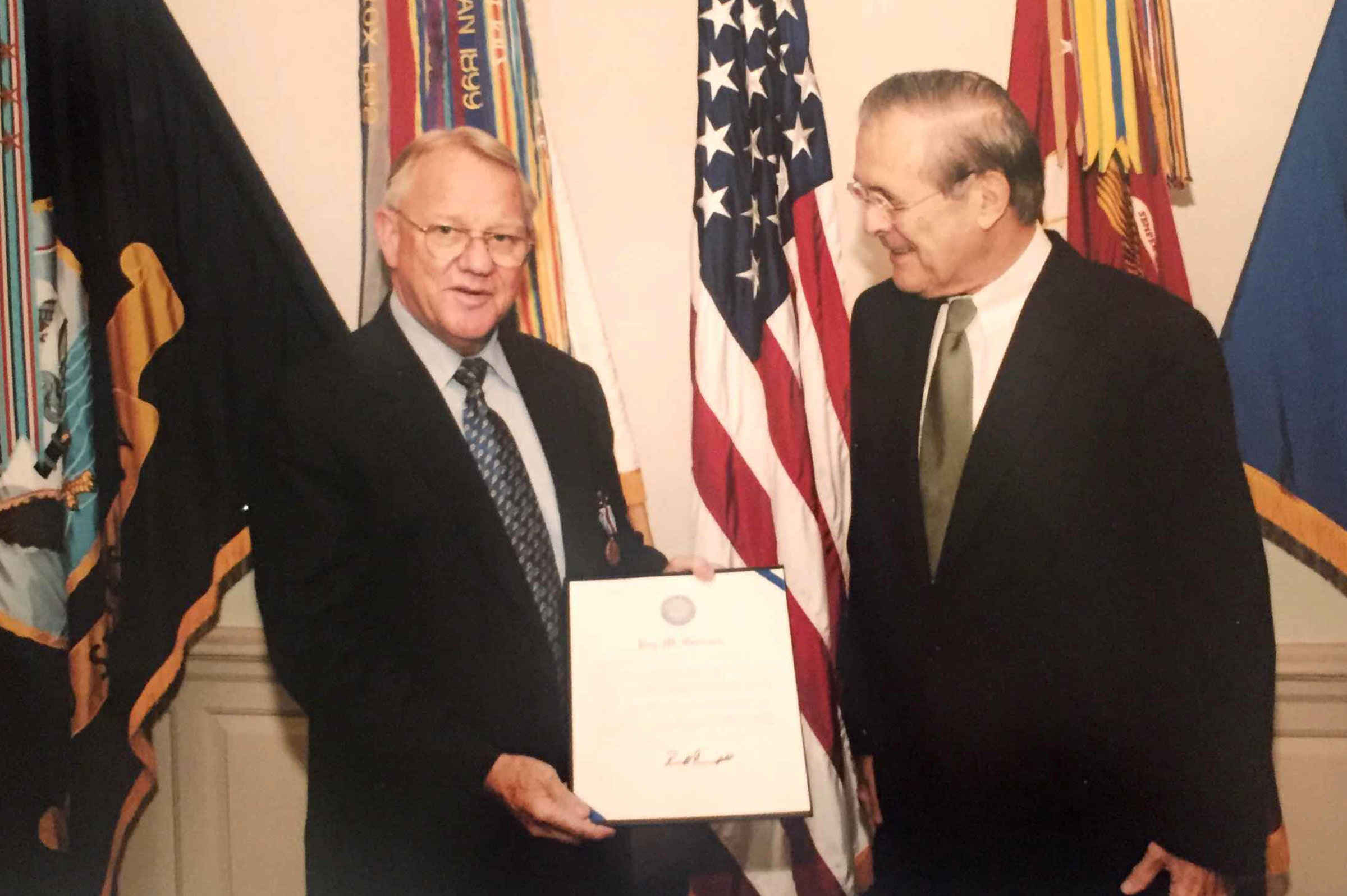
Jay Garner stands with Donald Rumsfeld
Jay aimed to create a federal system in Iraq, recognizing its diverse population. He envisioned four federal entities: one for the Shia in the south, another for the Sunnis in the west, the Kurdish region, and Baghdad as the capital. Each entity would have significant self-governance, with the federal government overseeing essential matters like citizenship and education. The hope was that Iraq would either unify or let entities choose independence. However, the process faced challenges which ultimately prevented the full realization of this vision.
Till this day Jay goes back to Kurdistan every 3-4 months and meets with the President, the Prime Minister, the Governors, the Foreign Ministers, the Generals in the Peshmerga and others. He meets with them to see how they’re doing, how they feel things are going and gets a feel for everything. Their friendship continues over the years and the relationship Jay has with them is the strongest of any American.
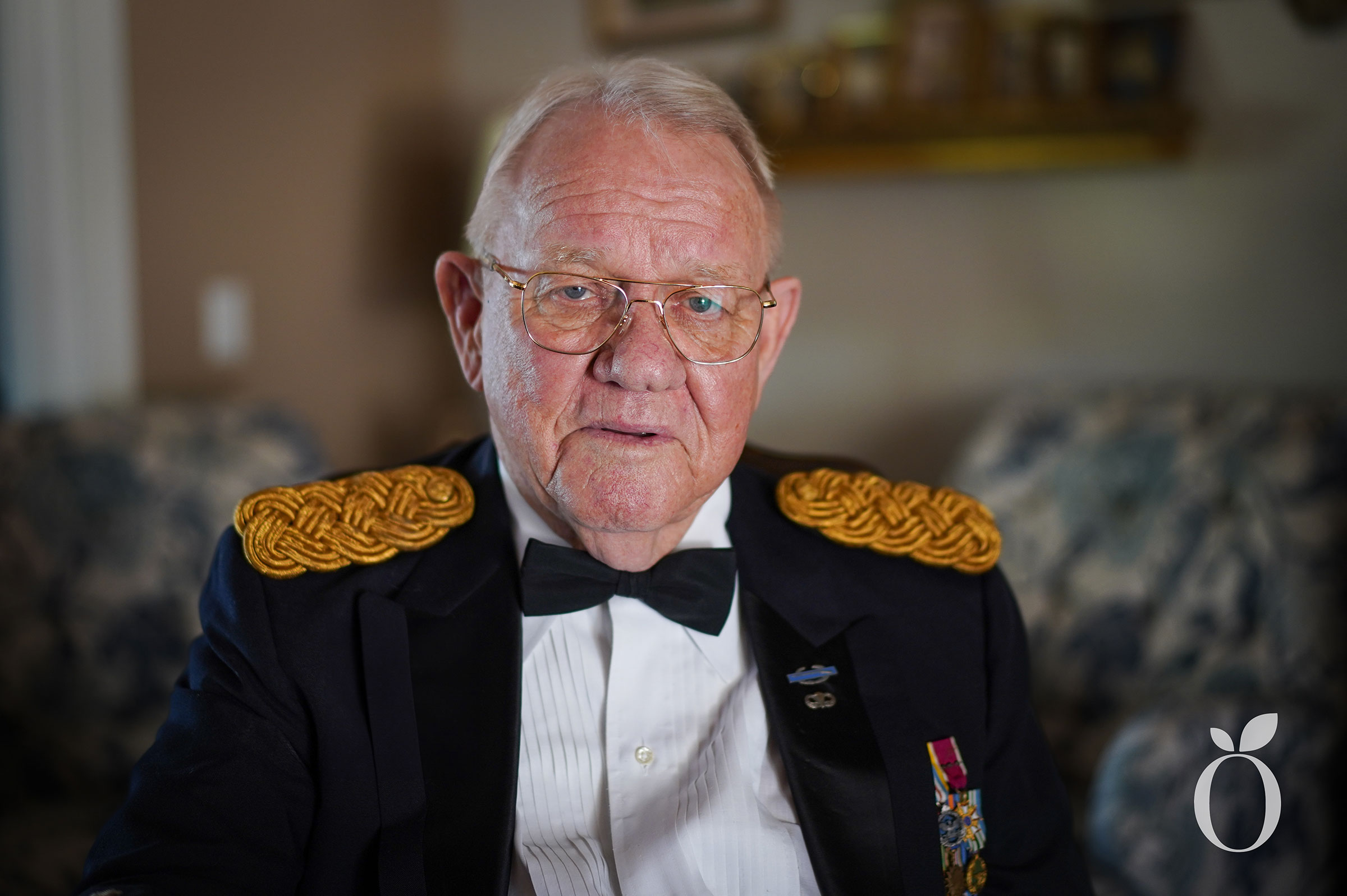
Defining the Orlando Life

